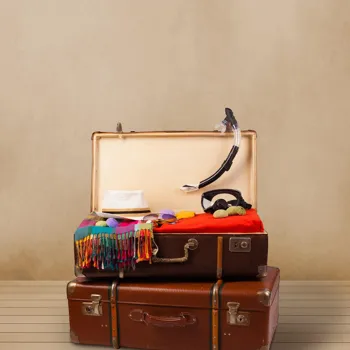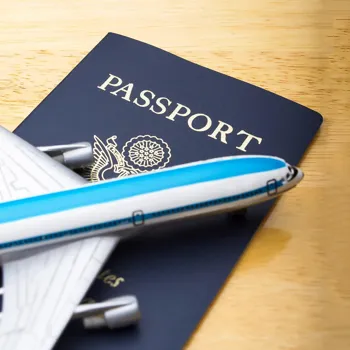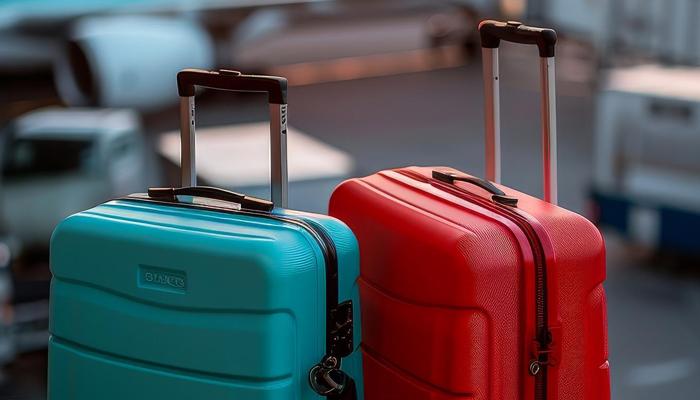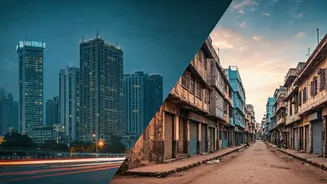Unravel 10 Essential Tips for International Travel. Discover what you need to know before you jet off!
Namaste, globe-trotters! Planning an international trip can be super exciting, but also a tad overwhelming,
isn't it? From visas to vaccinations, it's easy to feel like you're drowning in details. But don't worry, we've got your back!

We've compiled a list of 10 essential tips to ensure your journey is smooth, safe, and sensational. So, grab a cup of chai, and let's dive into the must-knows before you jet off!
Visa and Passport Power:
First things first, let's talk documents. Your passport is your golden ticket to explore the world, so make sure it's valid for at least six months beyond your intended stay. Check the entry requirements for your destination country. Do you need a visa?

Some countries offer visa-free entry to Indian citizens for tourism purposes, while others require you to apply in advance. Don't leave this to the last minute! Applying for a visa can take time. Scan or photocopy your passport, visa, and other important documents.
Keep a digital copy on your phone or email it to yourself, and store a physical copy separately from the originals. This is a lifesaver if your documents get lost or stolen.
Health is Wealth (and Essential for Travel!):
Before you pack your bags, consult your doctor about any necessary vaccinations or health precautions. Some countries require specific vaccinations, such as yellow fever. Check the latest health advisories for your destination.
Carry a basic first-aid kit with essentials like antiseptic wipes, bandages, pain relievers, and any prescription medications you need. If you have any underlying health conditions, carry a doctor's note explaining your condition and the medications you're taking.
Get travel insurance that covers medical expenses, trip cancellations, and lost luggage. It's a small price to pay for peace of mind. Travel insurance is a important that many tend to miss.
Money Matters: Currency and Cards:
It's always a good idea to have some local currency on hand for immediate expenses like transportation or small purchases. You can exchange money at the airport or at banks in your destination country.
Notify your bank about your travel dates to avoid your credit or debit cards being blocked for suspicious activity. Check if your cards have international transaction fees. Some credit cards offer rewards or cashback for international spending.
Explore your options and choose the card that best suits your needs. Familiarise yourself with the local currency and exchange rates. This will help you avoid getting overcharged or scammed. Knowing the value of your money is essential.
Pack Smart Not Hard:
Create a packing list to ensure you don't forget anything important. Consider the climate and activities you'll be doing, and pack accordingly. Pack light to avoid excess baggage fees and make it easier to move around. Roll your clothes instead of folding them to save space and prevent wrinkles.
Keep essential items like medications, toiletries, and a change of clothes in your carry-on bag in case your checked luggage gets delayed. Don't forget a universal adapter to charge your electronic devices. Different countries have different plug types, so an adapter is a must-have.
Learn a few basic phrases in the local language. Even a simple "hello," "thank you," and "excuse me" can go a long way.
Stay Connected (But Be Mindful):
Purchase a local SIM card or international roaming plan to stay connected. This will allow you to make calls, send messages, and access the internet. Download offline maps and translation apps before you go. This will be helpful if you don't have internet access.
Be mindful of your data usage to avoid hefty roaming charges. Use Wi-Fi whenever possible, but be cautious about connecting to public Wi-Fi networks, as they may not be secure. Share your itinerary with family or friends so they know your whereabouts. Check in with them regularly.
Respect Local Customs and Culture:
Before you travel, research the local customs and culture of your destination country. Dress modestly when visiting religious sites. Learn about local etiquette and avoid behaviors that may be considered offensive. Be respectful of local traditions and beliefs.
Try to learn a few basic phrases in the local language. This will show that you're making an effort to connect with the local culture. Be open-minded and embrace new experiences. Traveling is a great way to learn about different cultures and broaden your horizons.
Avoid loud behaviour and respect those who might be of a different culture.
AI Generated Content. Glance/InMobi shall have no liability for the content











